One Trump event, and the reaction to it, shows how badly America is broken
One event involving Donald Trump. Two deeply vociferous reactions. And absolute proof that Americans are trapped in a broken political discourse.
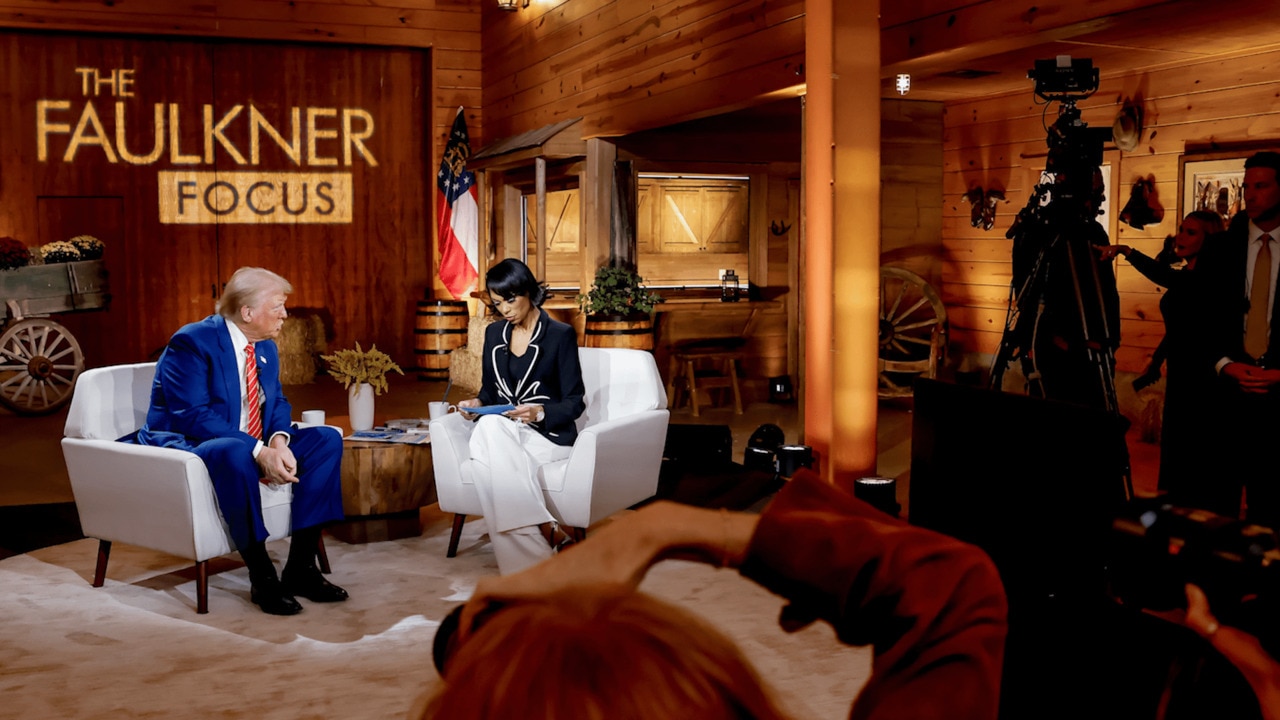
ANALYSIS
This week Donald Trump sat on stage, before an audience of businesspeople, for an interview focused on economic policy. Routine presidential campaign stuff; the sort of event you would normally expect to be dull but, one hopes, informative.
But Wednesday’s event ended up revealing less about Mr Trump’s economic plans than it did about the precarious, unproductive state of US politics.
When people talk about there being two Americas – a persistent motif in recent years – they don’t mean there is one half of America that supports a slightly higher corporate tax rate and another that prefers it to be lower.
They mean that, among politically engaged Americans, there are two bitterly opposed groups who don’t merely disagree on policy, but live in entirely different versions of reality.
The two groups barely understand, or even care to understand, each other’s point of view. They talk past each other, not to each other. The fear, often unspoken but ever-lurking, is that America’s political discourse is fundamentally broken, perhaps beyond repair.
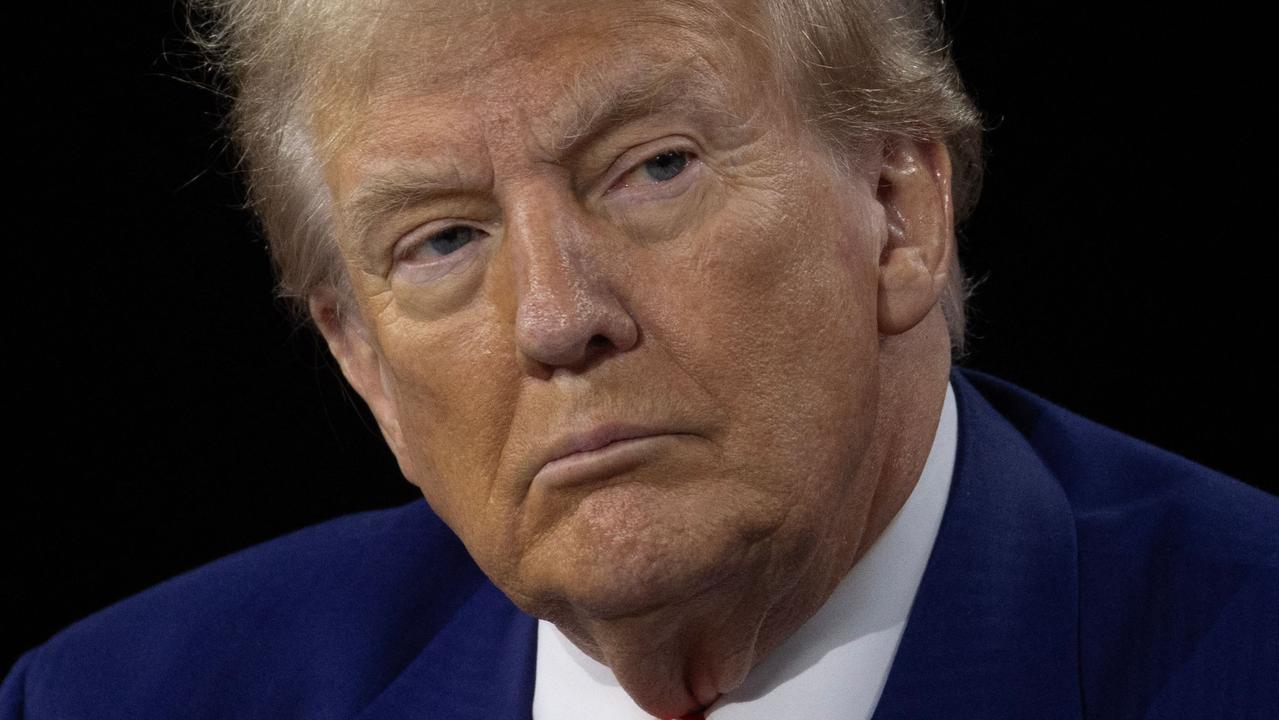
So, Mr Trump’s event on Wednesday.
He was interviewed, at the Economic Club of Chicago, by the editor-in-chief of business-focused publication Bloomberg, John Micklethwait.
Here is a small but representative sample of the reactions to this interview. Note that the people below are responding to the same performance, from the same event, and have reached diametrically opposed conclusions.
We shall start with the positives.
“Trump’s Bloomberg interview at the Economic Club of Chicago was the greatest live interview any political leader or politician has done on the economy in our lifetimes,” said Stephen Miller, who was among Mr Trump’s top advisers during his first term.
“This entire interview is incredible. President Trump walking into the lion’s den and reminding the people who’ve screwed up the country that they’re not as smart as they think,” said Republican vice presidential nominee, Ohio Senator J.D. Vance.
Now for the more negative appraisals.
“So funny how any time Trump bombs an interview they say he ‘walked into the lion’s den,’” said Brett Meiselas, co-founder of the anti-Trump news channel Meidas Touch.
“No, weirdos. He just couldn’t handle very basic questions and spontaneously combusted.”
“People still backing this guy because they think he has a grasp on policy or economics should be forced to watch this whole interview. What an absolute trainwreck,” said Justin Kanew, founder of The Tennessee Holler.
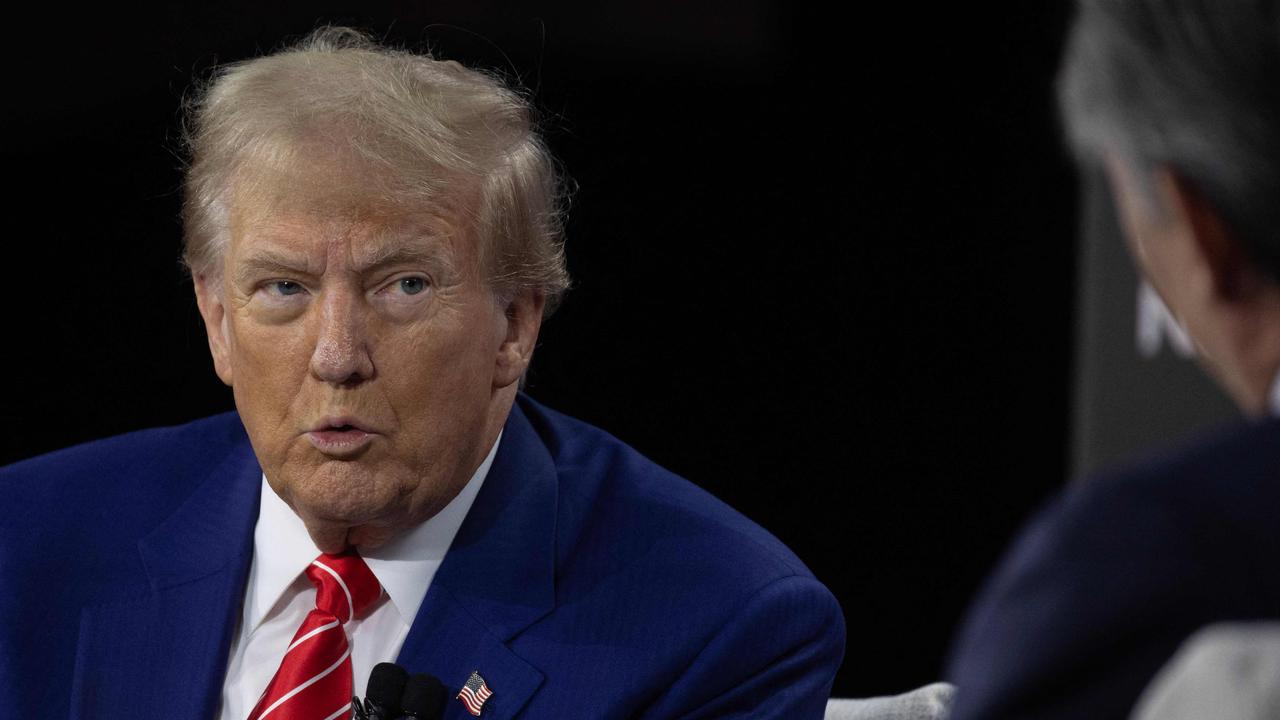
That gives you an idea. One lot thought Mr Trump was amazing, while the other thought he was incapable of answering even basic questions about his own policies. And these completely incompatible opinions were derived from the same footage, of the same interview.
Which side, if either, was right? We have transcribed the key parts of the interview below. You can make up your own mind.
Should Google be broken up?
In a court filing on Tuesday, the US Department of Justice suggested that Google’s core business, its search engine, should be broken up from its other products (the internet browser Google Chrome, for example, or the operating system Android).
The logic here is that Google has used its near monopoly-level market power to stamp out potential competition in the search business, leaving its users without a serious alternative.
Mr Trump was asked for his opinion on the matter.
“The US Justice Department is thinking about breaking up Alphabet, as Google likes to be known now. Should Google be broken up?” Mr Micklethwait asked.
“I just haven’t gotten over something the Justice Department did yesterday, where Virginia cleaned up its voter rolls and got rid of thousands and thousands of bad votes,” Mr Trump responded.
“And the Justice Department sued them, that they should be allowed to put those bad votes and illegal votes back in and let the people vote.
“So I haven’t, I haven’t gotten over that. A lot of people have seen that. They can’t even believe it.”
“But the question is about Google, President Trump,” Mr Micklethwait pressed.
“Yeah, look, Google’s got a lot of power. They’re very bad to me. Very, very bad to me,” Mr Trump said.
“They only have bad stories. In other words, if I have 20 good stories and 20 bad stories – and everyone’s entitled to that – you’ll only see the 20 bad stories.
“And I called the head of Google the other day, and I said, ‘I’m getting a lot of good stories lately, but you don’t find them in Google.’ I think it’s a whole rigged deal. I think Google is rigged, just like our government is rigged.”
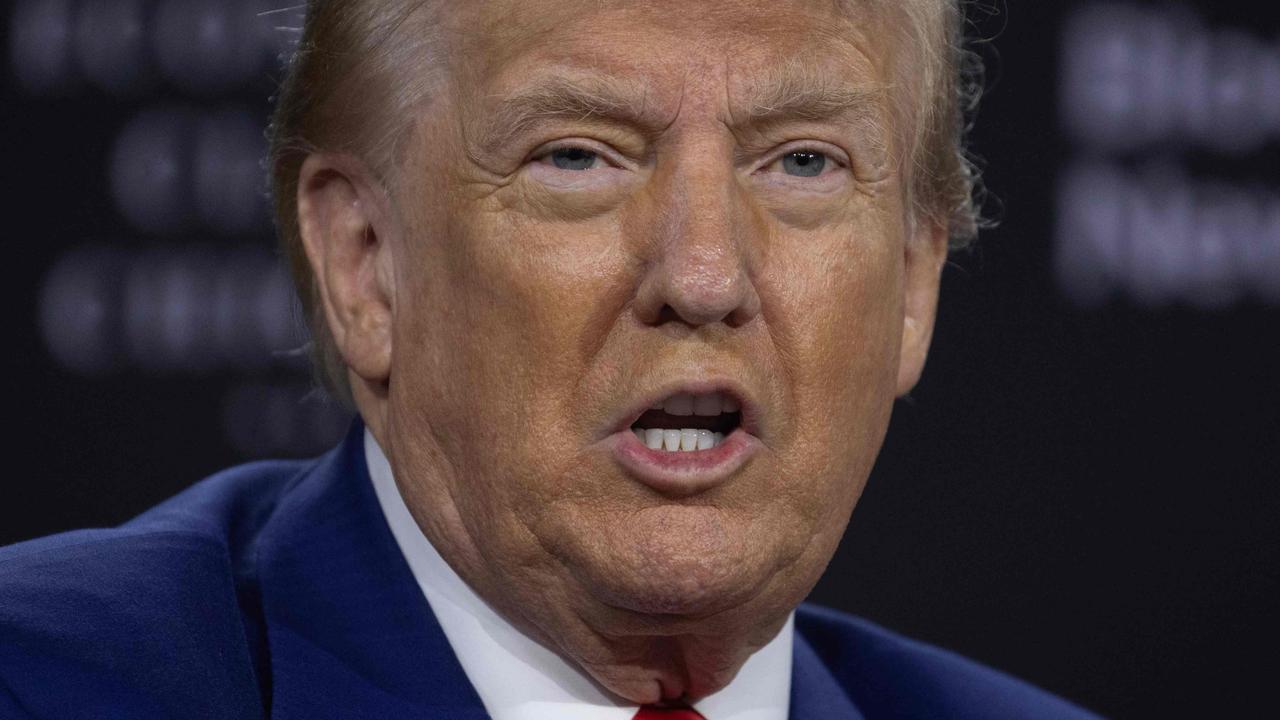
The Virginia case Mr Trump mentioned concerns an attempt by the state’s Republican Governor, Glenn Youngkin, to purge names from the electoral roll. His intent, he says, is to ensure no non-citizens can vote illegally. Federal authorities are worried that citizens might also be caught up in the purge, and be tossed off the roll without realising it.
The Department of Justice is arguing the purge is unlawful, as it is happening so close to the election – federal law prohibits states from changing their electoral rolls within 90 days of an election, to avoid confusion among voters.
America’s national debt
This week The Wall Street Journal, a conservative-leaning publication, published a survey of economists gauging the effects of both presidential candidates’ economic plans.
It found Mr Trump’s policies would add trillions of dollars more to America’s national debt than those of his opponent.
“The Committee for a Responsible Federal Budget, which is a bipartisan outfit, put out some predictions the other day,” said Mr Micklethwait.
“If you add up all the promises you’ve made, and your plans would add $7.5 trillion to the debt. That’s more than twice the total for Vice President Harris. You’re on course to push up debt to 150 per cent of GDP.”
Mr Trump responded to this by saying his plans were “all about growth”.
“We’re going to bring companies back to our country. You look at, even today, as I was driving over, I see these empty, old, beautiful, like steel mills and factories that are empty and falling down. Some have been converted to senior citizens’ homes, but that’s not going to do the trick. And we’re going to bring the companies back,” said Mr Trump.
“We’re going to lower taxes still further for companies that are going to make their product in the USA. We’re going to protect those companies with strong tariffs, because I’m a believer in tariffs. I’m not sure that you are. I don’t think you are.
“But to me, the most beautiful word in the dictionary is tariff, and it’s my favourite word. It needs a public relations firm to help it, but to me, it’s the most beautiful word.”
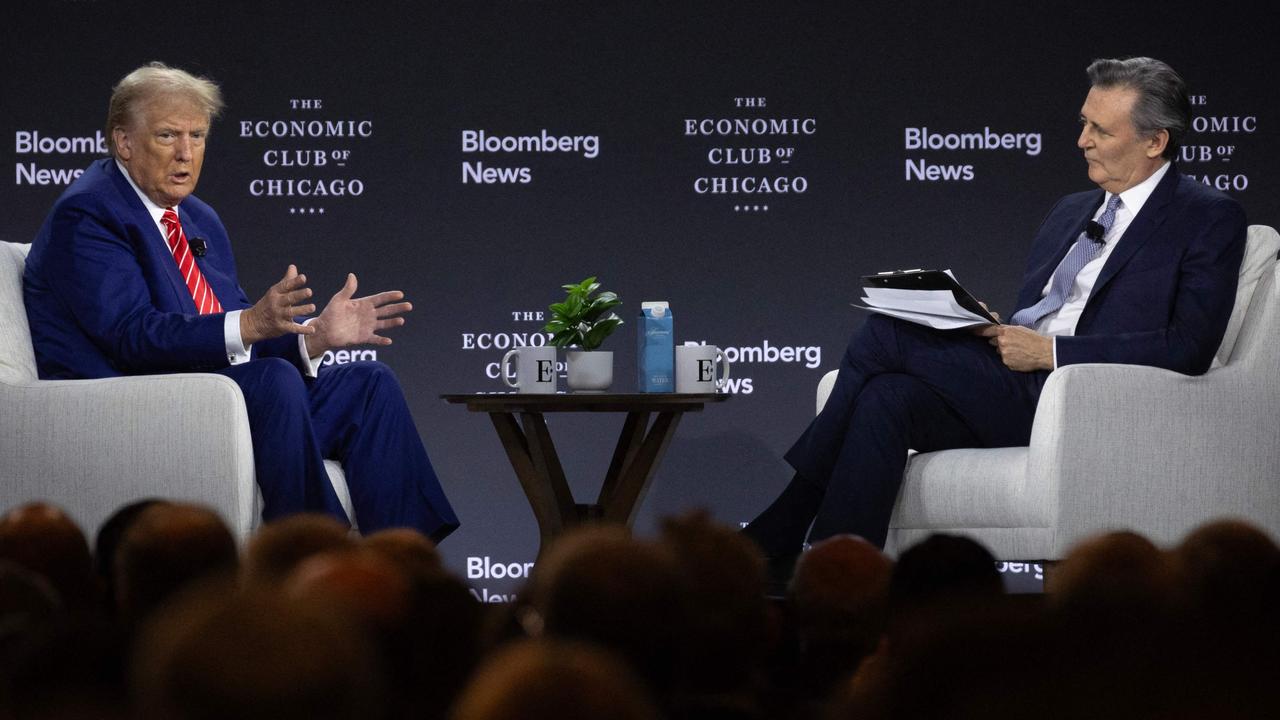
The tariff issue
This idea of imposing large tariffs on all imports to the United States is arguably the centrepiece of Mr Trump’s economic policy.
“Critics say your tariffs will end up being like a national sales tax,” said Mr Micklethwait.
“Nope,” said Mr Trump.
“America, at the moment, has $3 trillion worth of imports. If you’re going to add tariffs to every single one of them, that is going to push up the cost for all those people who want to buy foreign goods,” said the Bloomberg editor.
“No,” said Mr Trump.
“The higher the tariff, the more likely it is that the company will come into the United States and build a factory in the United States so it doesn’t have to pay the tariff.”
Elon Musk
“I was in Silicon Valley recently,” said Mr Micklethwait.
“You talked to the tech bosses and the tech people, and there seems to be a real fear that what you would do with tech is you would hand it over to Elon Musk and say, ‘You sort it out.’”
“No, no,” said Mr Trump.
“I have great respect for Elon. I saw that rocket ship come in yesterday and go right back to where it took off, to the gantry, I guess they call it, and I said, what the hell?
“I was on a phone talking about probably politics, and the television’s on, and I’m seeing this big thing where the white paint was burned off it from the, you know, thousands of miles an hour, the heat, and I see this big, massive tube that’s ten storeys, 20 storeys tall come down.
“I told the person on the phone, ‘Wait a minute, I’m seeing something that’s, I don’t believe it. Neither does anybody else here.’ And I said, ‘Wait a minute.’ I forgot the guy was on the phone. He waited for half an hour.
“And I watched that come down, and I watched it come down and come right in between those big levers.
“It was coming in hot. Boom, you see the motor. The fire kick in. And I called Elon. I said, ‘That’s the most incredible thing.’ I said, ‘Can Russia do that?’ Nope. I said, ‘Can the United States do it?’ Nope. He’s the only one that can do it.”
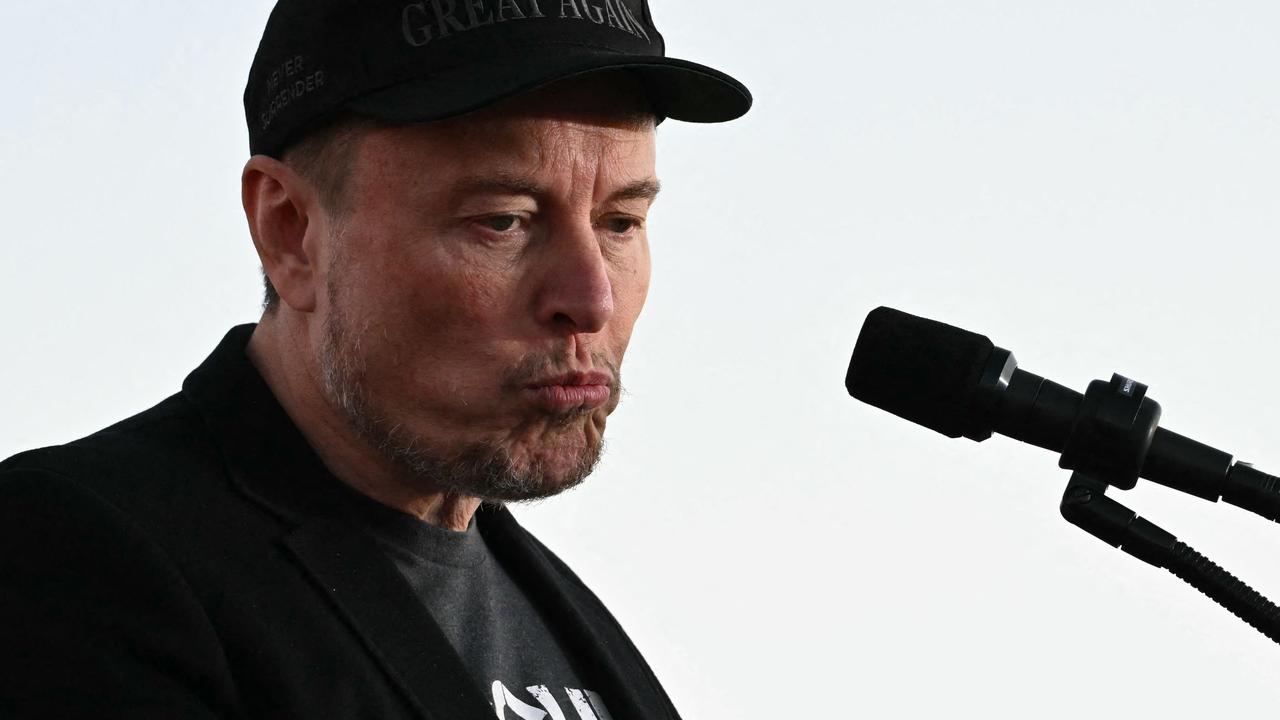
Government spending
Mr Micklethwait asked Mr Trump for a specific example of how he would cut government expenditure, to offset his large spending proposals.
“This is going forward, because it’s the same thing. When I first sat down, a general came into my office. He said, ‘Sir, it’s nice to meet you. Would you please sign this?’” Mr Trump recounted.
“I said, ‘What is it?’ ‘It’s a contract for a new Air Force One. Not one. Two Boeing 747s.’ And I said, ‘How much is it?’ ‘$5.7 billion.’ It’s a hell of an expensive plane. But there are reasons for that.
“He said, ‘Nope, I’m not signing it.’ I said, ‘Who negotiated?’ Barack Hussein Obama. I said, ‘I’m not signing it.’ Why? ‘Because there’s a lot of fat.’ He said, ‘I’m not signing it.’ It’s got to have a three on it.
“Anyway, long story short, some of you have heard this. The first week, they cut off $400 million. He said, ‘I’ll cut.’ I met with the head of Boeing. Wait. Dennis. I said, ‘Dennis, you’ve got to have a three. $5.7 is too much. $5.7 billion.’ He said, ‘The most I’ll take off is $400 million.’ I said, ‘Well, that’s not bad for one conversation.’ So he got it down.
“I said, ‘Nope, I’m not accepting.’ Then he took off two more. Anyway, two months went by. Three months went by. But we should have a new Air Force One. When we see these planes from Saudi Arabia, from different countries, brand new, and ours is like 32 years old, and it’s a very different plane. It’s a much smaller plane. The United States should have the best plane. I will tell you. Not for me.
“So he said, he calls up after like two, three months. I didn’t call him, which is the best way to buy something. And he goes, in fact, when he called me, I said, ‘I wonder what the hell he wants?’ That’s a good way to negotiate, let me tell you.
“So he calls back. He said, ‘Sir, $3,999,999,999 cents. One penny above, below $4 billion. So I said, ‘You got yourself a deal.”
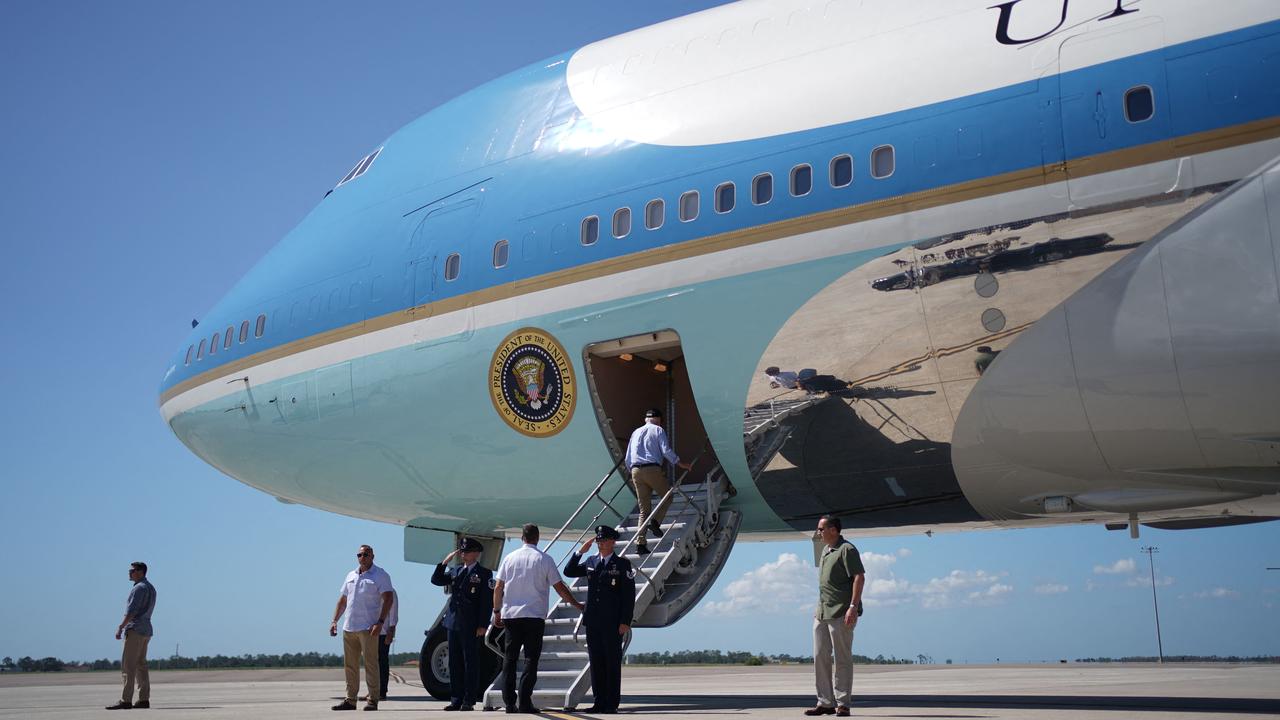
The ‘peaceful transfer of power’
Saying that business prefers certainty over uncertainty, Mr Micklethwait brought up the Capitol riot on January 6.
“If you look at the events of January the 6th, 2021, it showed to many people America’s democracy was unruly and violent,” he said.
“Only three weeks to go to the election. Will you commit now to respecting and encouraging a peaceful transfer of power?”
“Well, you had a peaceful transfer of power,” said Mr Trump.
“You had a peaceful transfer of power? Come on, President Trump. You had a peaceful transfer of power compared with Venezuela, but it was by far the most, the worst transfer of power for a long time,” Mr Micklethwait countered.
“Thank you. I appreciate that. This is what they like to do. This is what they like to do. And it’s very interesting,” said Mr Trump
“The question, President Trump, is would you respect the decision?” said Mr Micklethwait.
“When I found out about this interview, I did a little check. He’s a man that has not been a big Trump fan over the years,” said Mr Trump.
“So I had a choice. Do I do this interview or not? I’m glad I did it, but do I do this, interview or do I disappoint a lot of people? Because I know a lot of people in the audience.
“But his view is very different than mine.”
He went on to claim, falsely, that “not one of those people” in the crowd that marched on the Capitol “had a gun”. In fact there were many firearms among the mob.
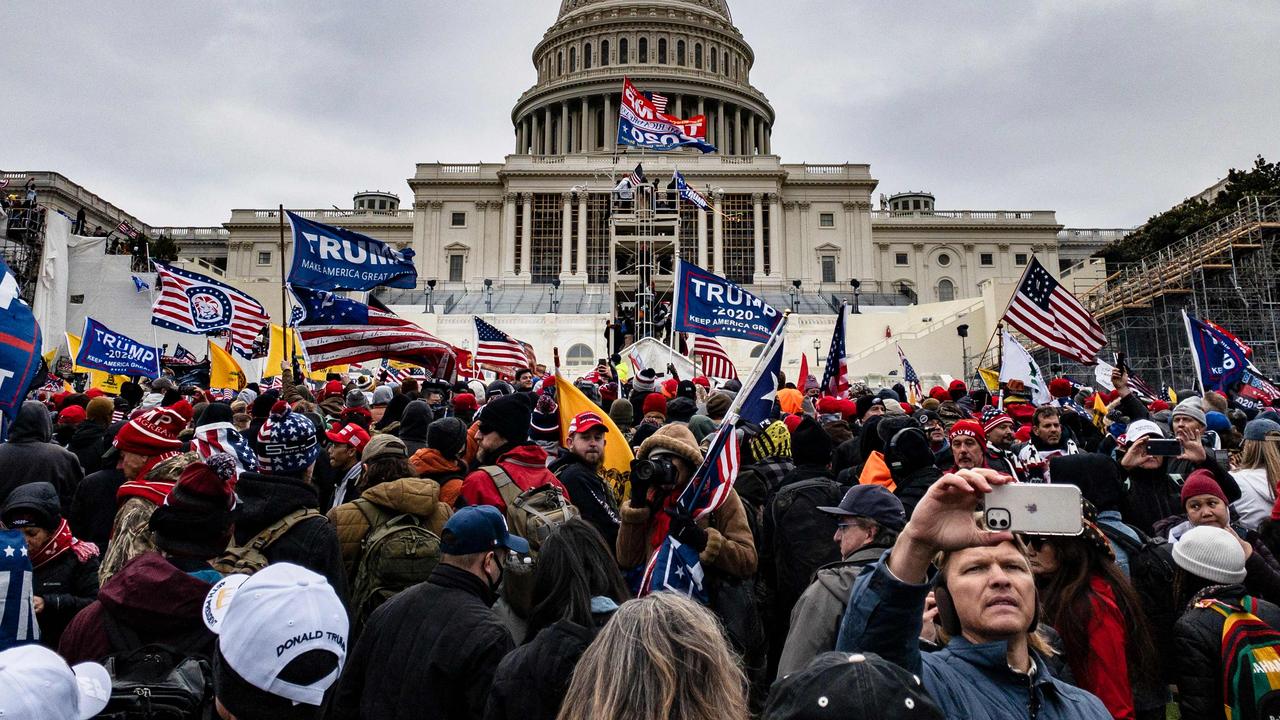
‘Newscum’
The interview ended with a question about the upcoming election results, and whether Mr Trump would commit to honour them.
He responded by implying illegal immigrants would be influencing the results.
“We don’t know anything about them. We don’t. Let me tell you about this. Gavin Newsom, he’s the Governor of California. Newscum, I call him,” said Mr Trump.
“Newsom,” Mr Micklethwait corrected him.
“He corrected me. That’s the first time I’ve been corrected,” said Mr Trump.
“There are CEOs out here, if they said those sorts of things about a rival CEO, they would be fired,” said Mr Micklethwait.
“They don’t have to survive like me. They don’t have to go through what I have to go through,” Mr Trump said.
“There’s never been a president that’s been treated like me, so I have to fight my own way.”
And so ended the event.




